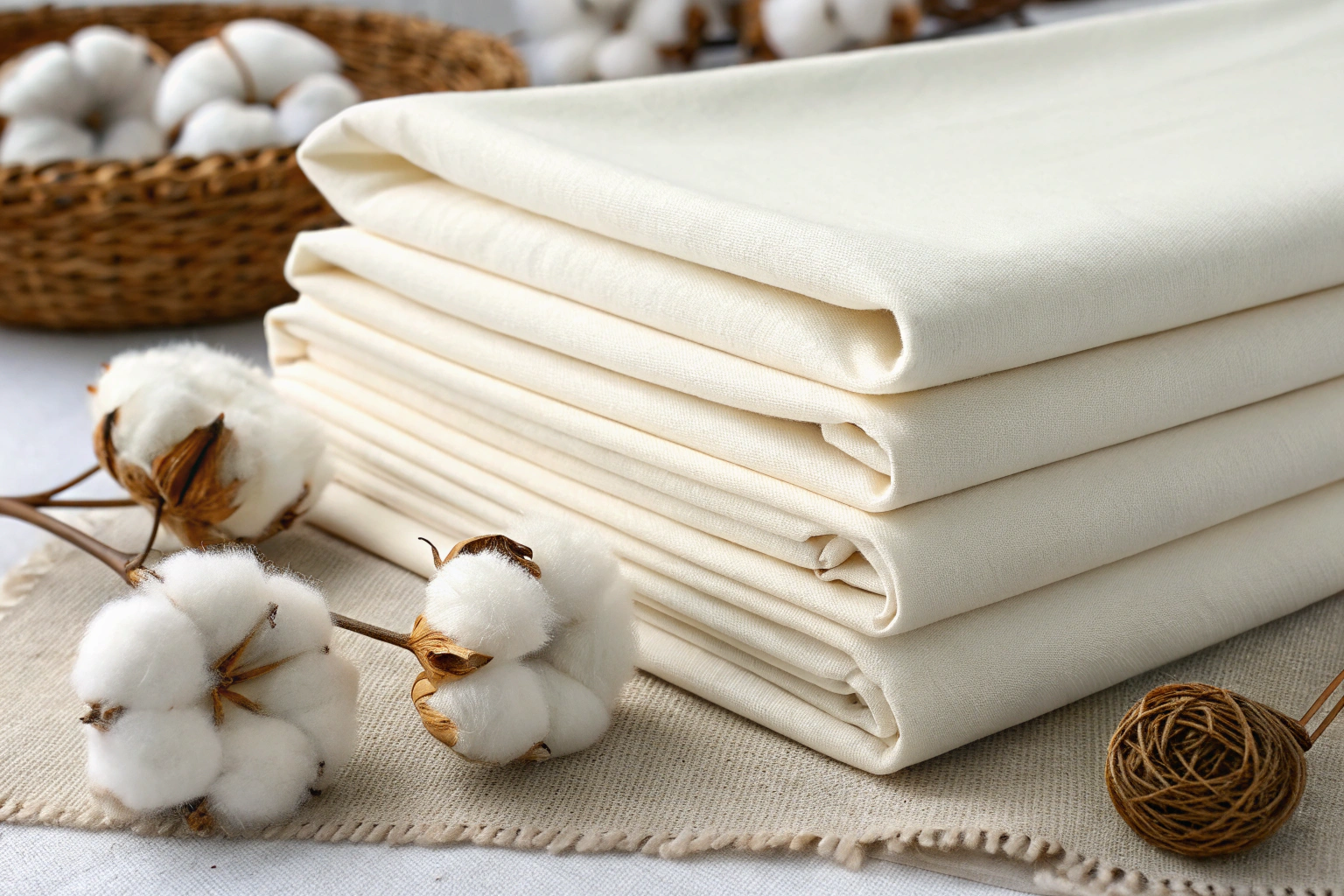Pima cotton is often hailed as one of the finest cotton varieties due to its exceptional softness and durability. But what makes Pima cotton stand out? Let’s explore its unique qualities and what you need to know before choosing Pima cotton fabric.

Pima cotton is prized for its softness, strength, and durability, offering superior comfort compared to regular cotton.
Pima cotton is known for its luxurious feel and high-quality fibers. Understanding its advantages and potential drawbacks can help you decide whether it’s the right fabric for your needs.
What is so special about Pima cotton?
Pima cotton is often referred to as "the cashmere of cotton" due to its superior quality. It’s a variety of extra-long staple (ELS) cotton, known for its longer fibers, which contribute to its unique characteristics.
Pima cotton stands out for its long fibers, which make it softer, stronger, and more durable than regular cotton.
The key feature of Pima cotton is its extra-long fibers. These long fibers are spun into finer, stronger threads, which results in a fabric that’s incredibly soft to the touch, yet very durable. The longer fibers reduce the chances of pilling and make Pima cotton fabrics more resistant to fraying, fading, and tearing over time. This makes Pima cotton ideal for high-quality clothing, bed linens, and other textiles that benefit from both softness and durability.
The fabric’s smooth texture gives it a luxurious feel, which is why it’s often used in premium shirts, sheets, and towels. It also has a natural sheen, contributing to its premium look. Additionally, Pima cotton is highly breathable, making it comfortable to wear in warm weather.
What are the disadvantages of Pima cotton?
While Pima cotton offers numerous advantages, there are a few potential drawbacks to consider when choosing this fabric.
Pima cotton is more expensive than regular cotton and may require extra care during washing to maintain its softness and longevity.
The main disadvantage of Pima cotton is its cost. Due to the extra-long staple fibers and the labor-intensive cultivation process, Pima cotton is more expensive than regular cotton. This can make products made from Pima cotton, like shirts or bed linens, pricier.
Another consideration is that Pima cotton, while durable, is still more delicate than some synthetic fabrics. It requires proper care to maintain its softness and quality. Washing it in hot water or drying it at high heat can cause shrinkage, and it may lose its softness if not cared for properly. Additionally, Pima cotton is more prone to damage from excessive washing compared to other fabrics, so it may require special care to retain its luxurious feel.
Are there different grades of Pima cotton?
Pima cotton grades are determined by the length of the fibers, with longer fibers resulting in softer, stronger fabric.
The highest quality Pima cotton is made from the longest fibers, which are more resistant to fraying and pilling. Fabrics made from these long fibers are smoother and more durable. Lower grades of Pima cotton may have shorter fibers, which could result in a fabric that isn’t as soft or durable as the top-quality version.
It’s important to note that when shopping for Pima cotton fabrics or products, the grade can affect the overall feel and longevity of the material. Higher-grade Pima cotton is often used in premium products such as luxury sheets and fine clothing, while lower-grade versions might be used in more affordable items.
Does Pima cotton shrink in the dryer?
Like most cotton fabrics, Pima cotton can shrink when exposed to high heat, especially in the dryer. However, because Pima cotton is a more durable material, it may shrink less than regular cotton.
Pima cotton can shrink in the dryer if exposed to high heat, but it tends to shrink less than regular cotton.
To minimize shrinkage, it’s recommended to wash Pima cotton in cold water and air dry or tumble dry on a low heat setting. This helps to preserve the fabric’s quality and prevent excessive shrinkage. If you’re concerned about shrinkage, you can always pre-wash your Pima cotton garments or bedding before use.
It’s also a good idea to avoid ironing Pima cotton at high temperatures, as this can damage the fibers and lead to a loss of softness.
Conclusion
Pima cotton is a high-quality, luxurious fabric that offers exceptional softness, strength, and durability. While it can be more expensive than regular cotton, its long-lasting nature and superior comfort make it worth the investment. If you’re looking for a fabric that combines comfort with durability, Pima cotton is an excellent choice.
